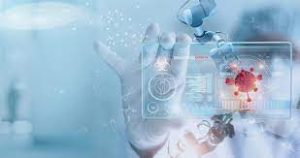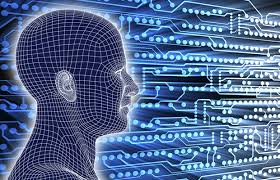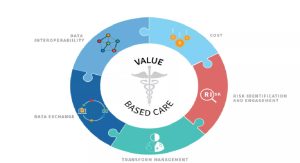Health Care (Healthcare) is the prevention, treatment, and management of illness, as well as the preservation of physical and mental well-being, provided by the medical, nursing, and allied health professions. Numerous scientific investigations and discoveries show a link between lifestyle choices and disease development in the future. Healthy living and preventive medicine arose as a result of a focus on health maintenance rather than disease treatment. In wealthy countries, the concept of personal well-being is becoming increasingly popular.
The Healthcare Industry’s Evolution
Over the last decade, the healthcare business has seen a significant upheaval. Increasing populations and improved technologies have altered the public perception of the healthcare industry. Patient’s quality of life is improving as there is an increasing need for less invasive treatments. The public wants more personalized and inexpensive healthcare options.

Modern trends encourage patients to take responsibility for their own health. Patients are no longer merely recipients of care in the modern day; they are also enablers of greater treatment outcomes. Wearable sensors have recently become popular as a result of ongoing medical research and technology advancements. Furthermore, the introduction of multiple health apps has made it easier for start-ups and established technology corporations to go commercial. New entrants are joining the healthcare sector as a result of consumerization.
- Advertisement -

The dynamics of healthcare have shifted substantially since the coronavirus disease 2019 (COVID-19) outbreak. A foolproof healthcare infrastructure, capable of handling catastrophic outbreaks, must be in place. They can be used to keep infectious infections at bay.
Stress
Other sources of stress have recently emerged, such as abrupt lifestyle changes, self-isolation, and concern for the health and future of loved ones. 80% of workers are experiencing more stress and uncertainty. Many people indicate that stress contributes to poor sleep quality, difficulties connecting with family members, and problems sustaining healthy relationships.

Biohacking
Biohacking comprises implanting small electronics beneath the skin to more accurately detect the body’s indications. Certain diets, medications, and supplements, according to biohackers, can improve cognitive ability, sexual drive, and physical fitness while also preventing aging.
Medical travel
In the following years, the worldwide medical tourism business is predicted to expand dramatically. Most people travel abroad to seek a second opinion and high-tech healthcare facilities, which many countries lack. Some others travel to take part in technical experiments. Indian tour operators reportedly secured contracts in December 2020 to transport individuals abroad to acquire coronavirus disease 2019 (COVID-19) vaccinations, ushering in vaccine tourism.
Important issues influencing the healthcare industry
Researchers identified three significant issues that will have an immediate impact on the healthcare industry. Wellness technologies, data-driven personalization, and climate change were among them.

Intelligent delivery of biologically active chemicals – There is a need to prioritize fresh ideas and tailored therapies. Smart distribution of biologically active substances is expected to be widely used in clinical treatment.
Telemedicine – During the COVID-19 pandemic, telemedicine made tremendous advancements. Patients, physicians, and clinics are increasingly using telemedicine and remote treatment to tackle medical issues without incurring big costs. In the post-industrial era, telemedicine will move medical care from the hospital to the patient’s house.
Health and Changes in the Climate
Extreme weather events and climate change have a substantial influence on patients. Global warming has the potential to intensify these consequences in the coming years. Environmental pollution and global warming, according to experts, are already driving future healthcare advances. Drought, rising water levels, and seasonal fluctuations may all play a role in such alterations.
Low-carbon healthcare. Efficient healthcare practices and integration with global climate goals are difficult to achieve. These can, however, be considered as an opportunity to create operational breakthroughs in the healthcare infrastructure.



